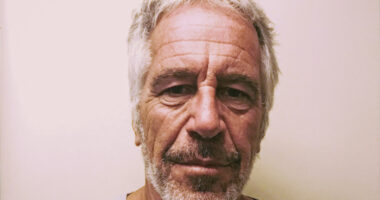Share this @internewscast.com
A DOOMSDAY prepper who has a personal bunker with goods worth $430,000 has shared an urgent warning as tensions rise from global conflicts.
Rowan MacKenzie is well-known for her expert advice in preparing for any disaster – including the end of the world.
Amid rising tensions and exchanges between Iran and Israel, a 40-year-old woman is offering what she considers vital guidance for those concerned about potential gray-zone attacks.
Rowan has admitted that she is concerned that World War III is just around the corner, so is preparing how she sees fit.
“Gray-zone attacks refer to the ambiguous space between peacetime and warfare,” the homemaker and real estate agent explained to NeedToKnow.
“It’s something we preppers consider when stockpiling.
“They need to be taken extremely seriously, as the economic crash can be just as disastrous as an actual physical war.
MacKenzie also revealed how many days’ worth of items to have in your stockpile at the very minimum.
“[You should] stockpile at least 72 hours’ worth of essentials.
“This includes water, food, medications [and] power sources, such as rechargeable batteries,” she explained.
“Keep a wind-up radio nearby to stay informed if the internet goes down.
“Learn basic first aid and fire safety.
“Practice emergency routines with household members, especially little ones.
“Get to know your local resilience forum and available services.
“As defense evolves, so too must public readiness.”
Although gray-zone attacks might not involve tanks or other weaponry, their impact can be just as severe on society.
Rowan, from the US, says her own prepping is no longer a hobby – she now considers it a necessity.
She added: “It’s becoming more and more practiced worldwide. “It never hurts to protect the people you love. “Don’t panic; make a list and execute.
“I’ve said it time and time again, you’ve got to be prepared for anything at any time.”


























